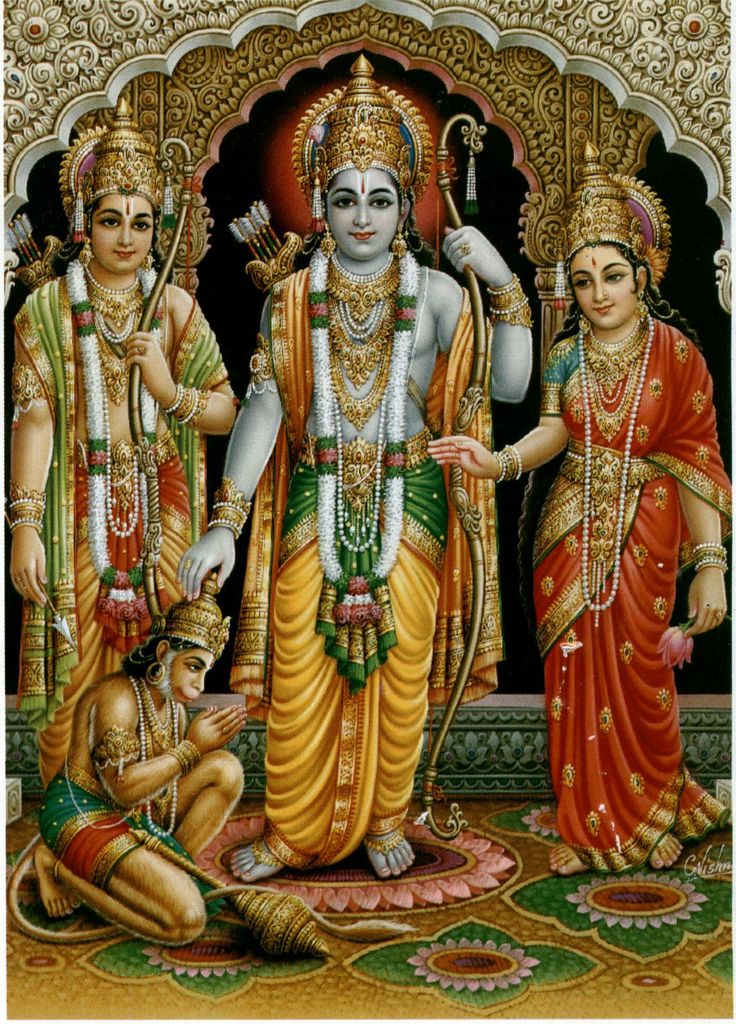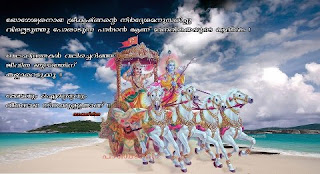Swami Adi Sankaracharya's Philosophy of Life :-2.
The destiny of man is unity with God, for man is essentially inseparable from God. Man is a part of the world, and the world is rooted in God; it cannot exist if God is not. The reality of the world is the reality of God. Whatever has any value in the world belongs to the nature of God. Sankara avers that God, or lshvara, is ultimately independent of all things and cannot be related to any externalised condition. When He is thought to be so related, He is called the Creator, the Preserver and the Destroyer of the world. As He is in Himself, He is the Absolute Whole, Brahman, Satchidananda (Existence-Knowledge-Bliss-Absolute). Man being only an appearance, his truth is in God, and man is, in the highest sense, God Himself; the jiva, when it is completely disillusioned, is the same as Brahman.
What, then, is the relation between the individual, the world and God? Sankara would forbid any such idea or use of expressions even suggesting a tripartite nature of existence. Only to man, the blinded individual, the world seems to be different from God and also from himself, who, too, seems to him to be different from God. The moment the screen is lifted, it will be seen that what really is, is an ocean of pure consciousness, the boundless Absolute, where the world and the individual are no more separate beings, but are united in Its indivisible glory of Infinity and Immortality. This is the grand destination of life, the purpose of everyone's existence, the goal of all aspirations and endeavours. Brahman alone is real; all else has no reality independent of Brahman.
The incarnation of Sankara had the supreme mission of opening the eyes of humanity to the Transcendent Ideal, for the attainment of which life is meant. The human being is asked to discipline and regulate his life so as to conform to the Eternal Reality of God, Atman or Brahman, the direct realisation of which alone is the aim of the activities in this universe. Sankara teaches the religion for all mankind, the one true religion of Brahmanubhava or Absolute experience. The practice of this eternal religion means, as a prerequisite thereto, the culture and nurture of the virtues of non-irritability, self-restraint, peace, fortitude, faith and collectedness of mind, which are to be carefully practised with the aid of clear discrimination of Truth and non-attachment to external objects and states. This implies a spontaneous implementation of personal, social and national as well as international peace as a natural consequence of the Universal Selfhood of Reality. In the history of the human race, there were indeed very few who preached with such an ardour of feeling and clarity of understanding the great doctrine of Truth, that in the realisation of the immortal Atman alone lies the real solace of the individual and of society. Glory to Sankara-Bhagavatpada, the eye-opener, the light-giver, the consoler, the healer of the wound of limitation, the remedier of the disease of ignorance!
END

.jpg)


Comments
Post a Comment